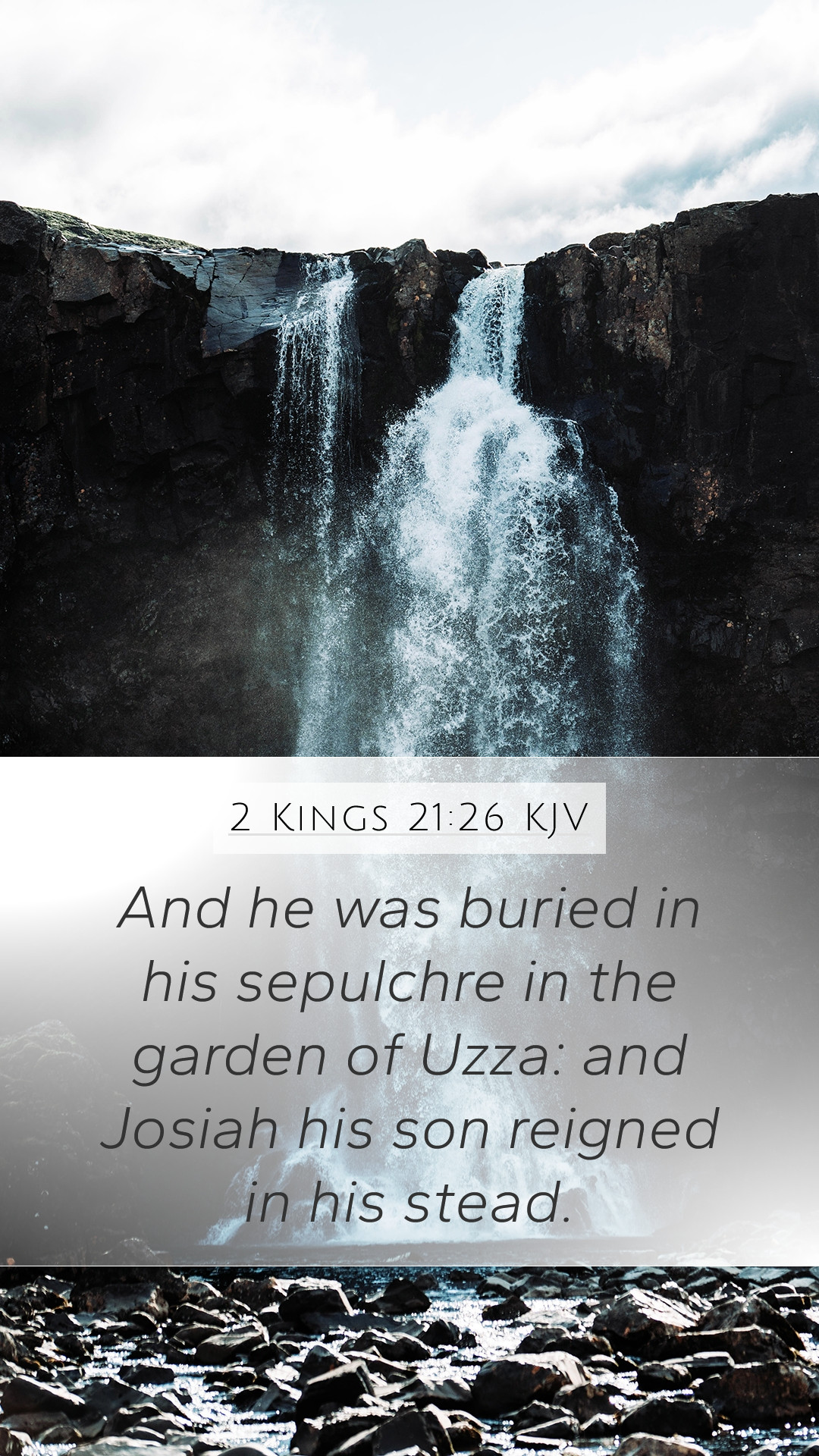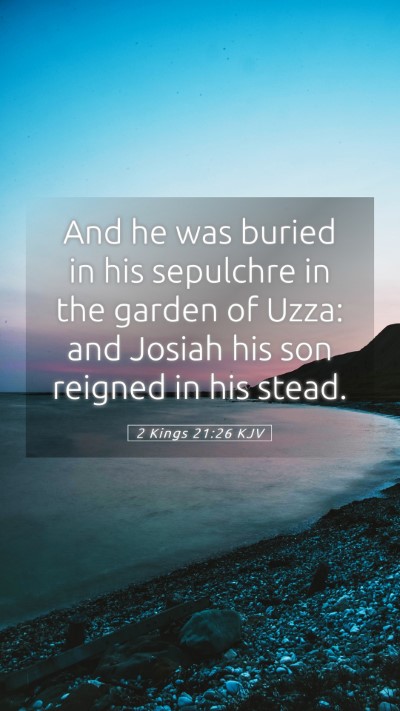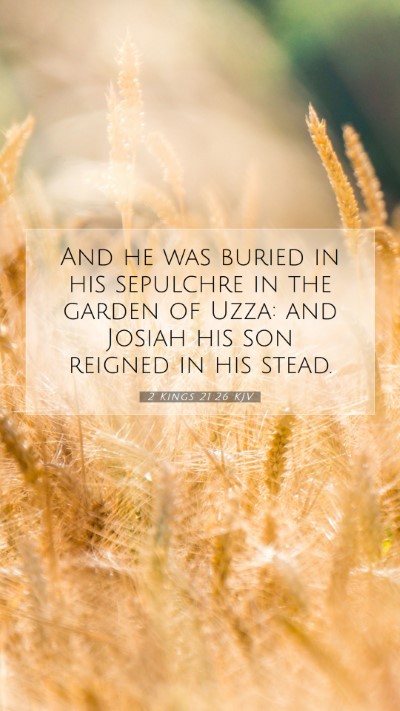Bible Verse Commentary for 2 Kings 21:26
Bible Verse: 2 Kings 21:26
This verse reads: "And he was buried in his own sepulcher in the garden of Uzza: and Amon his son reigned in his stead." This passage concludes the account of King Manasseh's reign, emphasizing his death and the succession of his son Amon.
Summary of Insights from Public Domain Commentaries
The meaning of this Bible verse can be explored through insights from various commentaries including those by Matthew Henry, Albert Barnes, and Adam Clarke.
Matthew Henry's Commentary
Matthew Henry discusses the tragic life of King Manasseh, noting that his reign was marked by idolatry and wickedness. He emphasizes that despite Manasseh's eventual repentance, the consequences of his actions led to significant spiritual decline among the people of Judah.
- Focus on Repentance: Manasseh’s later repentance, although genuine, did not erase the impact of his earlier sins.
- Legacy of Amon: The mention of Amon signifies a continuation of the sinful practices established by his father.
- Burial in the Garden of Uzza: This detail might indicate a less honorable burial than that of previous kings, reflecting the people's sentiments towards his reign.
Albert Barnes' Notes
Albert Barnes provides an elaboration on the political implications of Manasseh’s reign and his son Amon’s succession. He highlights the patterns of behavior in the Israelite monarchy, particularly how wicked kings often led their nations into further moral decay.
- Significance of Burial Place: The choice of burial location is noted as potentially disrespectful, indicating the fall from grace of Manasseh.
- Amon’s Influence: The notion that Amon continued in the ways of his father suggests a troubling legacy that affected the future of Judah.
- Cyclical Nature of Kingships: This illustrates a broader theme of the cyclical nature of sin and judgment experienced by the kings of Judah and Israel.
Adam Clarke's Commentary
Adam Clarke’s analysis touches on the cultural and historical context of the Jewish monarchy. He asserts that the king's rebellion against God ultimately led to judgment that could be seen through the turmoil in the kingdom during and after Manasseh’s reign.
- Historical Context: Clarke emphasizes the historical significance of Manasseh’s reign and its repercussions in the timeline of Israelite history.
- Impact on Society: The spiritual and social decay initiated under Manasseh’s rule set a precedent for subsequent rulers.
- Assessing Amon's Reign: He foreshadows that Amon’s reign followed the same destructive path, signifying God’s displeasure with the nation’s leaders.
Understanding the Implications of 2 Kings 21:26
In interpreting this verse, one should consider the broader narrative of Israel's history and the theological implications of leadership and its impact on national spirituality.
Key Themes:
- Consequences of Leadership: The fate of a nation can often be intertwined with the righteousness or wickedness of its leaders.
- Cycle of Sin and Judgment: This illustrates the recurring theme in Scripture of sin leading to judgment, which is particularly poignant in the Old Testament.
- Importance of Repentance: While Manasseh did repent, the note on Amon's reign serves as a warning about the weight of one’s past actions.
Bible Cross References
- 2 Kings 21:1-9 – Details about Manasseh's reign and idolatry.
- 2 Chronicles 33:1-9 – Parallel account providing greater detail on Manasseh’s actions and repentance.
- Isaiah 1:4 – Reflection on the spiritual state of Judah during the reigns of wicked kings.
Conclusion
In conclusion, 2 Kings 21:26 serves as a poignant reminder of the responsibilities that come with leadership, the potential consequences of wickedness, and the complex interplay between repentance and consequence. Understanding this scripture requires a careful consideration of its historical context, the consequences of Manasseh's actions on future generations, and the themes of divine justice articulated throughout the Bible.


